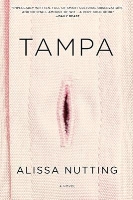Review: The Road to Jonestown: Jim Jones and the Peoples Temple
/5 stars. Quite simply, the story of Jonestown is strange. It's more bizarre, twisted and terrifying than anything Stephen King could conjure or produce. A huge, collective question remains decades later as we continue to sort out the details and recover from the shock. Why did it happen?
But that's not the question I want answered. I already know why it happened. Jonestown happened because life is full of senseless tragedies and terrible people. It happened because a charismatic man succumbed to his own hubris (and addiction). It happened because people are complicated, and even those with the best intentions can be misguided.
I picked up this book because I'm more intrigued by the how. I want to know the ins and the outs and the layers and the characters and every moment leading up to the story's horrific conclusion. I'm terribly curious - and also, very determined to honor the victims by trying to understand each and every perspective from start to finish.
Easier said than done, of course. But Jeff Guinn makes a wonderful attempt in his well-researched book The Road to Jonestown: Jim Jones and Peoples Temple. His narrative is exhaustive, and lengthy, but very rewarding for readers like me. There's no arguing that Jim Jones is frequently misrepresented by history, and Guinn leaves no rock unturned in the interest of treating him fairly.
He starts at the beginning, chronicling Jim Jones' early life in Lynn, Indiana. We meet him as an unusual child from a troubled family who practices sermons in the woods and attends every church service on Sundays. We watch him grow into a man with interests, with passion and charisma and faith and eventually, a man with a following. From Indiana to California we go, healing tumors along the way, before landing in the humid jungle of our nightmares.
Guinn is a decent biographer and exquisitely paints details that shape the story. Be aware, there is a thread here that very clearly portrays an opinion. Little comments here are there, winks and nudges and a whiff of disdain for Jones. But there is also restraint. Guinn is careful here - rarely openly critical - perhaps out of respect for Jones' family, his followers, his victims, or for history itself.
I would recommend this book for anyone interested in cults, crimes, fanaticism, religion, even just ... fascinating people. It's a murder mystery and a history textbook and a compelling portrait. I read it on my honeymoon and kept stopping to read aloud particularly crazy bits to my husband. Very in-depth, and very worth it.










